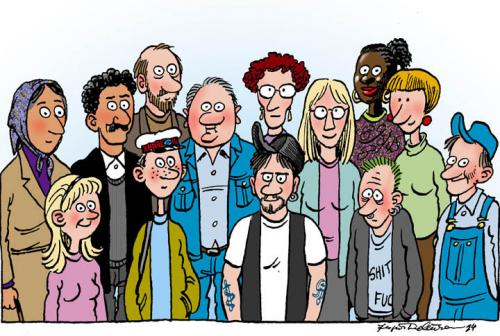Human Trafficking
By: Maria Brown
Is it possible to end modern day slavery? In a word, yes!
Contemporary slavery is a global problem. More than twenty-seven million people are bought, sold or traded in one of history’s oldest social institutions. There are numerous reports of exploited children as young as 3 years old. No one is safe. While it may seem that the problem is too big to solve, there are numerous things that can be done.
Abject poverty pushed many of today’s enslaved men, women, and children into the hands of predators. Some were duped and others were unsuspectingly betrayed by those closest to them. In our enlightened era, how can a brothel pay as little as $800 to a poor father for his fourteen year old daughter, and the father believe he has no other option? Economically solvent people can never understand 'prostitution desperation', or how persons unsuitable for prostitution end up as bonded labor working 15 hours per day in foreign households.
Poverty cannot be eradicated without access to education and the skills required to compete for jobs that pay better wages. In many third world countries public or privately sponsored aid programs don’t exist, or if they do, they are inadequately funded to be of much value. Powerful countries like the United States should fund educational grants that subsidize training for targeted groups in countries with the highest at-risk population.
Penalties for those who engage in human trafficking need to be more severe. According to AbolitionMedia.com, "In 2006 there were only 5,808 prosecutions and 3,160 convictions worldwide. This means for every 800 people trafficked only one person was convicted." It is time to stop turning a blind eye and take a stand to abolish modern day slavery.
Ending human trafficking begins with the introduction of educational opportunities in those countries hardest hit. It ends with the worldwide prosecution and eradication of those committing these crimes against humanity.
Edited by Barbara Latimer
Human Commodity: Too Big to Tackle
By: Mikki Dixon
The U.S. State Department's definition of human trafficking applies to people who are subjected to forced labor, sex trafficking, bonded labor, debt bondage for immigrant workers, involuntary domestic servitude, forced child labor, child soldiers, and child sex trafficking. The number of people forced into these types of slave arrangements is greater now than at any other time in history. Contemporary
slavery is, indeed, a global problem, and one too large for any law enforcement or government agency to tackle, even when combining forces.
“The government of the country should
prohibit severe forms of trafficking in persons and punish acts of such
trafficking”. That policy according to the Trafficking of Persons Report for 2012 will lead to a reduction in the number of human trafficking victims. It's disheartening to accept what the quote implies about prevailing attitudes toward combating human trafficking. Countries aren't being encouraged to prohibit human trafficking all together, but only to
prohibit “severe” forms of trafficking.
As the economic divide widens, more and more disenfranchised people will fall prey to predators who view human trafficking as a commodity business with unlimitless profits to be made. These profiteers do not have a social conscious and will continue until forced to stop.
Placing some responsibility for these conditions on the victims may spur controversy, but some of these
criminal activities could be limited if more people sought to improve their
situations where they currently reside instead of trying to pay unscrupulous
individuals to illegally transport them into another country, thus creating
bonded or debt labor situations for themselves.
I agree education
should be encouraged to aid those who wish to improve their living conditions,
and governments should be encouraged by their citizens to prosecute traffickers
to the fullest extent of the law. Regrettably however, this is something else I don't see happening anytime soon. Society lacks the resolve and means to end human trafficking.
Edited by Barbara Latimer
Edited by Barbara Latimer















